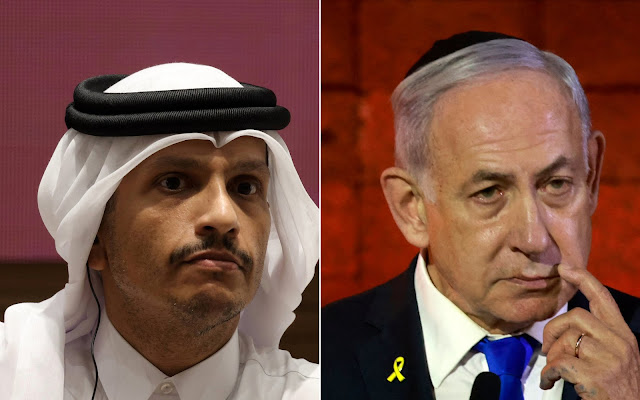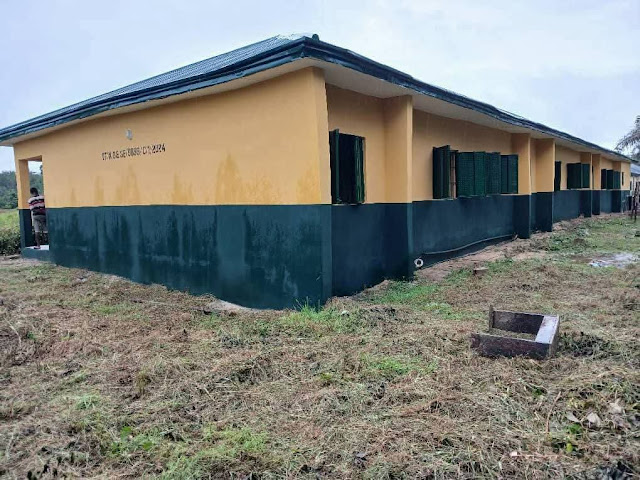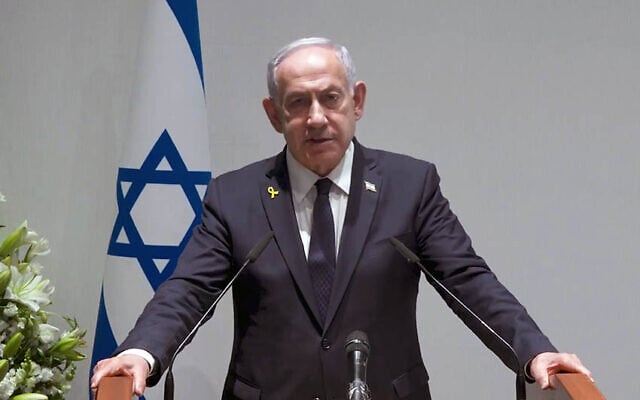On September 10, 2025, Qatar’s Prime Minister and Minister of Foreign Affairs, Sheikh Mohammed bin Abdulrahman Al Thani, delivered a scathing critique of Israeli Prime Minister Benjamin Netanyahu, accusing him of effectively destroying any hope for the release of Israeli hostages held by Hamas. Speaking at a press conference in Doha, Sheikh Mohammed pointed to Israel’s aggressive military operations, including the attempted assassination of Hamas leaders, as a primary obstacle to negotiations aimed at securing the hostages’ freedom. His remarks underscore the deepening complexities of the Israeli-Palestinian conflict, the fragile nature of ceasefire talks, and the broader geopolitical dynamics at play in the Middle East.
Context of the Hostage Crisis
The ongoing Israeli-Palestinian conflict, a decades-long struggle rooted in competing claims to land, identity, and sovereignty, has once again reached a boiling point. The current hostage crisis stems from the October 7, 2023, attack by Hamas, the Palestinian militant group controlling the Gaza Strip, on Israeli territory. During the assault, Hamas militants killed over 1,200 people, mostly civilians, and abducted approximately 250 individuals, including men, women, children, and elderly citizens. The attack, one of the deadliest in Israel’s history, prompted a massive retaliatory military campaign by Israel, which has since resulted in tens of thousands of Palestinian casualties, widespread destruction in Gaza, and a worsening humanitarian crisis.
As of September 2025, over 100 hostages remain in captivity, though the exact number is uncertain due to conflicting reports and the chaotic conditions in Gaza. Efforts to negotiate their release have been led by Qatar and Egypt, two regional powers with established channels of communication with both Israel and Hamas. However, these talks have repeatedly stalled due to mutual distrust, competing demands, and escalations in violence. Qatar, in particular, has played a pivotal role as a mediator, leveraging its unique position as a Gulf state with ties to both Western governments and Islamist movements like Hamas.
Qatar’s Role as a Mediator
Qatar’s involvement in the Israeli-Palestinian conflict is not new. The small but wealthy Gulf nation has positioned itself as a key diplomatic player in the Middle East, often acting as a neutral intermediary in conflicts where direct communication between parties is impossible. Doha hosts the political leadership of Hamas, including figures like Ismail Haniyeh, who was killed in an Israeli airstrike in Tehran in July 2024. Qatar’s willingness to engage with Hamas, combined with its strong diplomatic ties to the United States and other Western nations, has made it an indispensable player in hostage negotiations.
Sheikh Mohammed’s remarks reflect Qatar’s growing frustration with the lack of progress in these talks. According to the Qatari Prime Minister, Israel’s military strategy, particularly its targeted killings of Hamas leaders, has not only failed to weaken the group but has also jeopardled their resolve to resist negotiations. “The actions of the Israeli leadership, particularly Prime Minister Netanyahu, have repeatedly undermined the mediation process,” Sheikh Mohammed stated. “By targeting Hamas leaders, they have killed any hope for a resolution that would bring the hostages home.”
The Impact of Targeted Assassinations
The attempted assassination of Hamas leaders, which Sheikh Mohammed referenced, is part of Israel’s broader strategy to dismantle the group’s leadership and operational capacity. Since the October 7 attack, Israel has intensified its targeted killing operations, a tactic it has employed for decades against Palestinian militants and other adversaries. Notable targets have included Ismail Haniyeh, killed in Tehran, and Yahya Sinwar, Hamas’s Gaza-based leader, who remains a primary target. Israel’s military has also conducted airstrikes on Hamas infrastructure, often at the cost of significant civilian casualties, further complicating the prospects for a ceasefire.
Critics of Israel’s approach, including Qatar, argue that such actions are counterproductive. The assassination of Hamas leaders, while intended to weaken the group, often leads to the elevation of more hardline figures within the organization. For example, following Haniyeh’s death, Yahya Sinwar, known for his uncompromising stance, consolidated his control over Hamas’s decision-making. This shift has made negotiations more difficult, as Sinwar is reportedly less open to compromise than his predecessor.
Moreover, targeted killings have inflamed tensions in Gaza and beyond, fueling public anger and strengthening Hamas’s narrative of resistance against Israeli aggression. The deaths of civilians in Israeli airstrikes, often described by Israel as “collateral damage,” have drawn international condemnation and complicated the diplomatic efforts of mediators like Qatar and Egypt. Sheikh Mohammed emphasized that Israel’s actions have created a vicious cycle of violence, making it nearly impossible to build the trust necessary for a hostage deal.
The Hostage Negotiations: A Fragile Process
The hostage negotiations have been fraught with challenges from the outset. Hamas has demanded a complete Israeli withdrawal from Gaza, an end to the blockade, and the release of hundreds of Palestinian prisoners in exchange for the hostages. Israel, on the other hand, insists on the unconditional release of all captives and has vowed to continue its military campaign until Hamas is eradicated. These irreconcilable positions have repeatedly derailed talks, despite the efforts of mediators.
Qatar and Egypt have proposed several frameworks for a ceasefire and hostage release, including phased agreements that would involve temporary pauses in fighting, the exchange of hostages for prisoners, and the delivery of humanitarian aid to Gaza. However, each round of negotiations has collapsed, often due to escalations in violence or disagreements over the terms of the deal. For example, in early 2024, a proposed truce was scuttled when Israel launched a major offensive in Rafah, displacing hundreds of thousands of Palestinians and drawing international criticism.
Sheikh Mohammed’s comments highlight the delicate balance mediators must strike in navigating the demands of both sides. Qatar has faced criticism for its role as a host to Hamas’s political leadership, with some accusing Doha of enabling terrorism. However, Qatari officials argue that their engagement with Hamas is essential for maintaining open channels of communication and facilitating negotiations. “We cannot mediate effectively if we do not have access to all parties,” Sheikh Mohammed said. “Our goal is to save lives and bring an end to this cycle of violence.”
Netanyahu’s Strategy and Domestic Pressures
Israeli Prime Minister Benjamin Netanyahu’s approach to the conflict has been shaped by a combination of strategic calculations and domestic political pressures. Netanyahu, who leads a fragile coalition government that includes far-right and ultranationalist parties, faces intense scrutiny over his handling of the hostage crisis and the broader war in Gaza. Families of the hostages have staged large protests in Israel, accusing the government of prioritizing military objectives over the safe return of their loved ones. Some have even called for a unilateral ceasefire to secure the hostages’ release.
However, Netanyahu’s coalition partners, including figures like National Security Minister Itamar Ben-Gvir and Finance Minister Bezalel Smotrich, have pushed for a hardline approach, advocating for the complete destruction of Hamas and the annexation of parts of Gaza. These pressures have constrained Netanyahu’s ability to pursue a negotiated settlement, as any perceived concession to Hamas could destabilize his government.
Furthermore, Netanyahu has argued that military pressure is essential to weaken Hamas and force the group to release the hostages. In public statements, he has emphasized that Israel will not bow to terrorism and will continue its operations until its objectives are met. “We are fighting a war for our survival,” Netanyahu said in a recent address. “Hamas must be defeated, and the hostages will be brought home through strength, not weakness.”
Critics, including Sheikh Mohammed, argue that this approach is flawed. By escalating military operations and targeting Hamas leaders, Israel risks prolonging the conflict and jeopardizing the hostages. The deaths of several hostages in Israeli airstrikes have further fueled accusations that Netanyahu’s policies are reckless and counterproductive.
The Humanitarian Crisis in Gaza
The war in Gaza has created one of the worst humanitarian crises in recent memory. According to the United Nations, over 40,000 Palestinians have been killed since October 2023, with more than 90,000 injured and nearly two million displaced. Entire neighborhoods have been reduced to rubble, and critical infrastructure, including hospitals, schools, and water systems, has been destroyed. The blockade of Gaza, which Israel has maintained since 2007, has exacerbated the crisis, limiting access to food, medicine, and other essential supplies.
International aid organizations have warned of an impending famine in Gaza, with malnutrition rates soaring among children. The lack of clean water and sanitation has also led to outbreaks of diseases, further compounding the suffering of Gaza’s population. Efforts to deliver humanitarian aid have been hampered by ongoing fighting, bureaucratic obstacles, and attacks on aid convoys.
Qatar has been a major donor of humanitarian aid to Gaza, providing millions of dollars in assistance for reconstruction, healthcare, and education. However, Sheikh Mohammed emphasized that aid alone cannot address the root causes of the crisis. “The people of Gaza need more than temporary relief,” he said. “They need a lasting solution that guarantees their dignity, security, and right to self-determination.”
Regional and International Reactions
Sheikh Mohammed’s remarks have reverberated across the Middle East and beyond, highlighting the growing frustration with the lack of progress in resolving the conflict. Egypt, which has worked closely with Qatar in mediating the hostage talks, echoed Doha’s concerns, with a senior Egyptian official stating that Israel’s actions have “severely undermined” the negotiation process.
The United States, Israel’s closest ally, has faced increasing pressure to broker a ceasefire. President Joe Biden has publicly called for a deal to secure the hostages’ release and has dispatched senior officials to the region to facilitate talks. However, the U.S. has also continued to provide military and financial support to Israel, drawing criticism from Arab states and human rights organizations.
The European Union, United Nations, and other international bodies have also called for an immediate ceasefire and the resumption of peace talks. However, the polarized nature of the conflict, combined with the lack of trust between the parties, has made a comprehensive resolution elusive.
The Broader Geopolitical Context
The Israeli-Palestinian conflict is not occurring in isolation but is deeply intertwined with broader geopolitical dynamics in the Middle East. Qatar’s role as a mediator reflects its broader strategy of positioning itself as a key player in regional diplomacy. By hosting Hamas’s political leadership and engaging with Western governments, Qatar has sought to balance its relationships with competing powers in the region.
The conflict has also strained relations between Israel and other Arab states. The Abraham Accords, signed in 2020, normalized relations between Israel and several Gulf states, including the United Arab Emirates and Bahrain. However, the ongoing war in Gaza has tested these agreements, with public opinion in the Arab world overwhelmingly supporting the Palestinian cause.
Iran, a key supporter of Hamas and other militant groups like Hezbollah, has also played a significant role in the conflict. The assassination of Ismail Haniyeh in Tehran, widely attributed to Israel, has heightened tensions between Israel and Iran, raising fears of a broader regional war. Hezbollah, based in Lebanon, has engaged in near-daily clashes with Israeli forces along the border, further complicating the regional security landscape.
The Path Forward: Challenges and Opportunities
As the war in Gaza approaches its second year, the prospects for a resolution remain uncertain. The hostage crisis, in particular, has become a focal point for both sides, with Hamas using the captives as leverage and Israel insisting on their unconditional release. Qatar’s mediation efforts, while admirable, face significant obstacles, including the lack of trust between the parties and the ongoing escalation of violence.
Sheikh Mohammed’s remarks underscore the need for a new approach to the conflict. By accusing Netanyahu of sabotaging the hostage talks, Qatar is signaling its frustration with the current trajectory of the war and calling for greater international pressure on Israel to pursue a negotiated settlement. However, any deal will require concessions from both sides, a prospect that seems unlikely given the current political climate.
For Israel, the challenge is to balance its security concerns with the urgent need to secure the hostages’ release. For Hamas, the question is whether it can negotiate in good faith while maintaining its ideological commitment to resistance. For mediators like Qatar and Egypt, the task is to bridge these divides while navigating their own domestic and regional pressures.
Conclusion
The accusations leveled by Qatar’s Prime Minister against Benjamin Netanyahu highlight the deep-seated challenges in resolving the Israeli-Palestinian conflict and securing the release of hostages held by Hamas. The attempted assassination of Hamas leaders, while part of Israel’s broader strategy to weaken the group, has had the unintended consequence of complicating negotiations and prolonging the suffering of both Israelis and Palestinians. As the war in Gaza continues, the international community faces a critical test of its ability to facilitate a just and lasting resolution to one of the world’s most intractable conflicts.
Qatar’s role as a mediator remains essential, but its efforts are constrained by the intransigence of the parties involved and the broader geopolitical dynamics of the region. Sheikh Mohammed’s remarks serve as a stark reminder of the human cost of the conflict and the urgent need for a new approach that prioritizes dialogue, de-escalation, and the protection of civilian lives. Whether such an approach is possible in the current climate remains to be seen, but the stakes could not be higher for the hostages, the people of Gaza, and the future of the Middle East.






